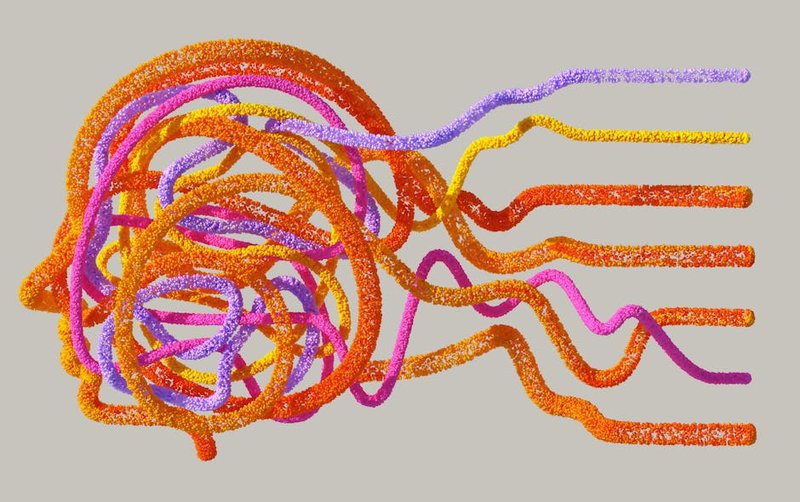I found myself floating through an endless digital corridor, where walls of binary code stretched infinitely upward. Each number pulsed with life – green for “yes,” red for “no,” yellow for “abstain.” The German Bundestag voting patterns transformed before my eyes into a massive Git contribution graph, each vote a colored square in a cosmic calendar of democracy.
“This is how we measure the heartbeat of modern governance,” whispered a voice beside me. I turned to see a spectral figure composed entirely of commit messages, their form shifting as new votes were tallied.
“But can democracy truly be understood through code?” I asked, reaching out to touch one glowing node that represented a pivotal healthcare decision affecting millions.
The figure laughed, its digital outline rippling. “You’re asking the wrong question, Brian. The real question is: can code help us understand democracy better than ever before?”
As if responding to this philosophical challenge, the corridor expanded, revealing a vast repository of German laws stretching to the horizon – each statute, amendment, and regulation neatly organized in directories and subdirectories of legal markdown files. Pull requests hovered like luminous butterflies, each one carrying proposed changes to the legal framework governing 83 million lives.

Democracy – The Coded Archives of Democratic Will
I found myself drawn to a particular cluster of commits, their timestamps dating back decades. The laws of Germany, stretching from the founding of the Federal Republic to today’s digital age, all preserved in Git’s immutable ledger. What struck me most wasn’t just the preservation but the transparency – each amendment tracked to the politician who proposed it, each vote recorded for posterity.
“This isn’t just archival,” I realized aloud. “This is accountability made manifest.”
The spectral figure nodded, its form momentarily taking the shape of the Reichstag dome. “Notice how some repositories are maintained weekly, while others lie dormant. Democracy requires constant gardening, constant commitment.”
I observed how jandinter’s weekly scrapes of official websites created a living record of German law that official channels hadn’t yet embraced. The volunteer efforts of citizens creating what governments should provide – a transparent, accessible record of the rules by which society operates.
My dream-self floated toward a visualization showing how laws evolve over time. Branching and merging, just like code. Constitutional provisions forked into implementation statutes, regulations merged back into comprehensive reforms. Democracy visualized not as static documents but as living, breathing processes.
“But the mistakes,” I murmured, noticing the small discrepancies between different versions. “Missing commas, articles, spaces – could these change how laws are interpreted?”
The figure’s form darkened. “That’s the danger. When buzer.de and gesetze-im-internet.de disagree on punctuation, which version does a judge consult? Which version determines someone’s fate in court?”
Democracy – The Quantum Uncertainty of Legal Text
The corridor shifted, and I found myself in a German courtroom where three different judges consulted three different sources for the same law. Each source – slightly different. The first judge read from an official-looking bound volume, the second from a digital tablet displaying gesetze-im-internet.de, and the third from a printout of jandinter’s GitHub repository.
“Until recently, they all purchased books,” the spectral figure explained. “Physical, authoritative volumes. But in the last decade, they’ve gradually accepted digital sources as reliable enough.”
I watched as the defendant’s fate wavered in quantum uncertainty – three interpretations of the same law, each potentially leading to a different outcome.
“The official publications are in the Bundesgesetzblatt,” continued my guide, “but even those require human consolidation. No single text is officially designated as authoritative.”
This revelation sent a chill through me. In my dream-logic, I understood a profound truth: laws exist as potentialities until interpreted, like quantum particles whose properties aren’t fixed until observed.

“Think of the Grundgesetz,” the figure continued, “Germany’s Basic Law. In 1949, it declared ‘Human dignity is inviolable.’ Imagine a future amendment changing it to ‘Human or Alien dignity is inviolable.’ Simple enough. But when these changes accumulate over decades, scattered across thousands of PDFs, who guarantees the accuracy of the consolidated text?”
I felt my consciousness expanding to encompass the totality of this problem – not just in Germany but in democracies worldwide. Laws as code. Code as law. But unlike software where tests can verify functionality, legal texts face an uncertain ground truth.
The Democracy We Dream Of
The scene morphed again, and I found myself floating above Berlin, watching streams of data flowing into the Bundestag and out to the citizens. Tools like abstimmung.eu and digebu.de appeared as bridges connecting these streams, making the incomprehensible comprehensible.
“This is what evolution looks like,” my guide said. “Citizens building interfaces to their own governance when official channels prove inadequate.”
I watched as someone used digebu.de to navigate complex legal references, highlighting connections between statutes and regulations. The interface looked remarkably like the code editors I use daily – syntax highlighting, reference jumping, version control.
“The same tools we use to manage complexity in software are being repurposed to manage complexity in governance,” I realized.
“Yes,” replied the figure, “but not by the government itself – at least not yet. These are built by people who believe democracy requires accessibility.”
I noticed myself drawn to the pattern of activity – the weekly commits maintaining legal repositories, the pull requests suggesting amendments, the issue trackers discussing interpretations. Democracy reimagined not as periodic voting but as continuous participation.
“The legal code of a nation is too important to exist only in forms inaccessible to its people,” I declared.
My guide’s form began to dissolve into the data streams. “That’s the dream you must share when you wake, Brian. A vision of governance where the rules are not mystical texts interpreted only by high priests of law, but living documents accessible to any citizen with curiosity.”
As I felt myself waking, the last thing I saw was a contribution graph spanning centuries – votes and laws and amendments stretching from Germany’s past into its future, each a testament to the collective will of a people governing themselves, one commit at a time.
And in that moment, I understood: the true power of democracy lies not in the perfection of its rules but in the transparency of its processes – in our ability to see, understand, and participate in the ongoing creation of the society we share.



